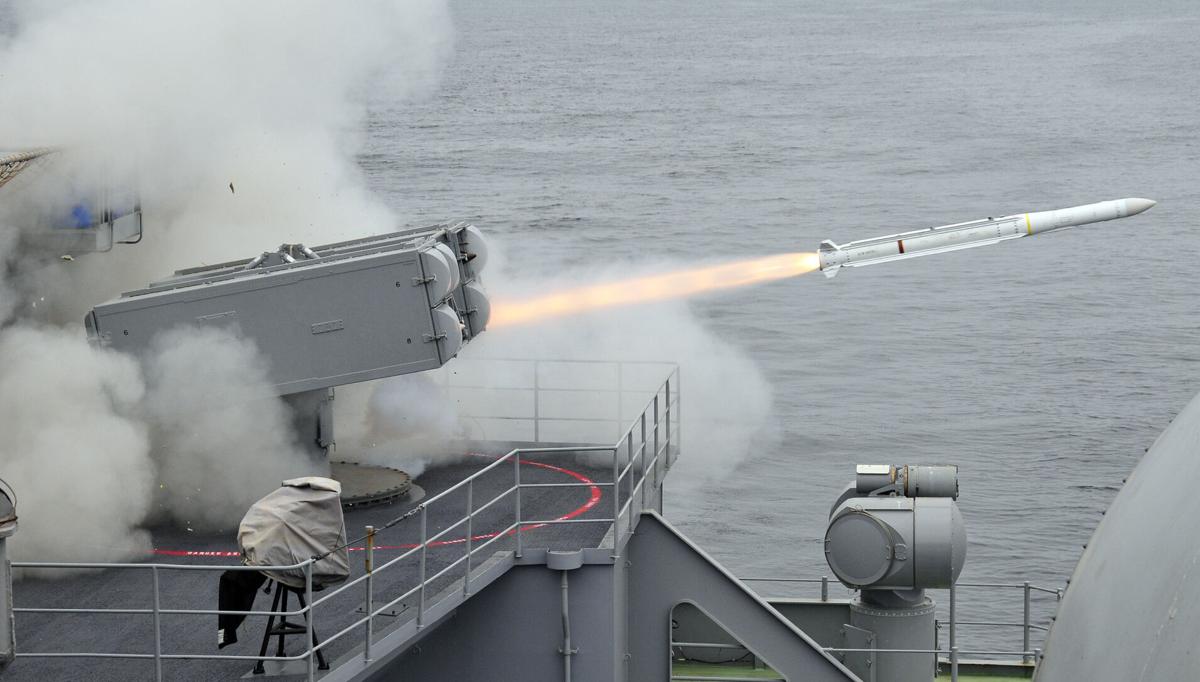Raytheon Technologies Corp., parent of Tucson-based Raytheon Missiles & Defense, on Tuesday reported third-quarter profit of $1.4 billion, beating Wall Street forecasts as its commercial aviation business began to rebound from a pandemic slump.
But the company’s third-quarter revenue fell short of analysts’ expectations, as the U.S. exit from Afghanistan and pandemic disruptions weighed on sales, and Raytheon shares closed at $89.16, down $2.14 or more than 2% in trading on the New York Stock Exchange.
On a conference call with analysts, Raytheon Technologies Chairman and CEO Greg Hayes said the company expects the U.S. withdrawal from Afghanistan will cost the company $75 million in sales this year, which he called “not huge, but meaningful.”
Hayes said supply-chain disruptions and staffing issues related to the COVID-19 pandemic will cost the company some $275 million this year but the company expects to recover that in coming quarters.
“The fact is, we haven’t been able to bring enough people on board to generate the revenue that we were expecting,” said Hayes.
The Waltham, Massachusetts-based company posted quarterly net income of 93 cents, which after adjustments for one-time gains and costs came to $1.26 per share.
The results topped Wall Street expectations for adjusted earnings of $1.07 per share, according to average estimates of analysts surveyed by Zacks Investment Research.
The aerospace and defense company posted revenue of $16.2 billion in the third quarter, missing analysts’ average forecast of $16.5 billion.
Raytheon Technologies increased its full-year outlook, pegging earnings in the range of $4.10 to $4.20 per share, with revenue expected to be $64.5 billion.
The company’s third-quarter results included $496 million in accounting adjustments and non-recurring charges related to its announced acquisitions of global aircraft-tracking company FlightAware and space-electronics maker SEAKR Engineering.
Raytheon Missiles & Defense saw its third-quarter sales rise 5% to $3.9 billion and its operating profit increase to $490 million, up 9% from third-quarter 2020.
Higher third-quarter sales at the Tucson-based unit were driven mainly by growth on an international National Advanced Surface to Air Missile System program and on the Advanced Medium-Range Air-to-Air Missile program, the company said. Major contract bookings included $432 million to provide Patriot Guidance Enhanced Missiles for a foreign ally and $358 million for Evolved Sea Sparrow Missiles for the U.S. Navy and international customers.
Raytheon’s Collins Aerospace, which makes an array of aircraft components, had third-quarter operating income of $480 million and 2021 adjusted sales of $4.6 billion, up 7% versus the prior year as a 38% increase in commercial aftermarket sales more than offset declines in sales of new commercial equipment and military products.
Engine maker Pratt & Whitney posted third-quarter sales of $4.7 billion, up 35% from last year, and swung to an adjusted operating profit of $189 million after losing $43 million in third-quarter 2020.
Third-quarter sales at Raytheon Intelligence & Space were virtually flat from a year ago at $3.7 billion, while adjusted operating profit rose 12% to $391 million, mainly on productivity gains.





